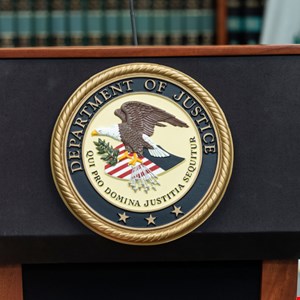The US Department of Justice (DoJ) is doubling the size of the team investigating cryptocurrency crime, with the fight against ransomware “an urgent priority.”
In a speech at the Center for Strategic and International Studies on Thursday, July 20, Principal Deputy Assistant Attorney General Nicole M. Argentieri announced the merger of the National Cryptocurrency Enforcement Team (NCET) into the Computer Crime and Intellectual Property Section (CCIPS).
Argentieri explained that the move creates “a single office that consolidates the Criminal Division’s expertise in all aspects of fighting cybercrime,” which will help “bring the NCET to the next level.”
The NCET was launched in 2021 by Deputy Attorney General Lisa Monaco, with the task of overseeing complex investigations and prosecutions of criminal misuses of cryptocurrency.
In the speech, Argentieri described the task force as “the government’s most impressive collection of cryptocurrency-knowledgeable criminal lawyers, equipped with a deep understanding of the technology, business, and legal sides of cryptocurrency.”
Within the CCIPS, the NCET will continue its work investigating and prosecuting criminal offenses involving the abuse of cryptocurrency. Argentieri said the merger will double Criminal Division attorneys available to work on criminal cryptocurrency matters, as any CCIPS attorney can now potentially be assigned to work an NCET case.
Read here: Crypto Crime Down 62% but Ransomware Activity Surges
She also noted that cryptocurrency work within the Criminal Division of the DoJ now has equal status to computer crime and intellectual property work.
Additionally, Argentieri said the merger “will multiply the entire Department’s ability to trace cryptocurrency,” including its ability to seize legally forfeitable cryptocurrency to return those funds to victim organizations.
A notable example of this type of work was the seizure of millions of dollars’ worth of cryptocurrency paid to the Darkside ransomware gang following the attack on Colonial Pipeline in 2021.
In another case, in April 2023, the DoJ announced the seizure of six cryptocurrency wallets believed to have been used to launder the proceeds of investment fraud scams.
The incorporation of the NCET into the CCIPS will help meet the ambitions set out by President Joe Biden in the US’ National Cybersecurity Strategy published in March 2023. This strategy emphasized that ransomware is a threat to national security, and one of the pillars of the strategy focuses on disrupting and dismantling threat actors.
The new “super-charged” CCIPS will now be better equipped to disrupt and prosecute ransomware attackers, according to Argentieri.
“The new super-charged CCIPS, merged with NCET, will use its combined expertise to answer this urgent call: the CCIPS cybercrime experts will investigate ransomware crimes, and NCET cryptocurrency specialists will pursue all available opportunities to track criminals through their ransomware payments, vigorously pursuing cryptocurrency payments and freezing or seizing them before they go to Russia and other ransomware hotspots,” she commented.
In her speech, Argentieri also revealed that Claudia Quiroz, a long-time Assistant United States Attorney from the U.S. Attorney’s Office in the Northern District of California, will serve as the Acting Director of NCET, with current incumbent Eun Young Choi stepping away from the role.
Image credit: lev radin / Shutterstock.com
Credit: Source link


Comments are closed.